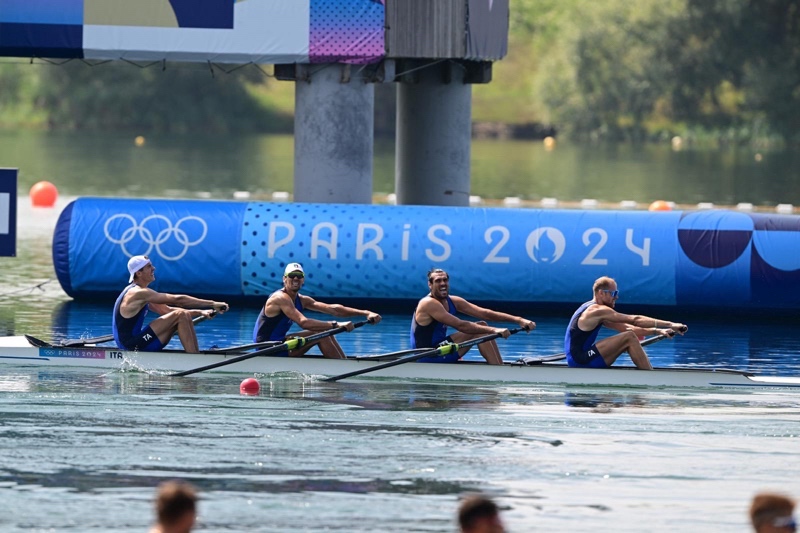This year, Oxford sent eight of its sons and daughters to Paris for the Olympic and Paralympic Games. Cherwell looked into our history at the Games and spoke to some of them too.
Oxford has sent hundreds of sportspersons to the Olympics and Paralympics, stretching all the way back to the inaugural modern Games in 1896. Over the years, our prodigal students and alumni have represented myriad countries across sports from tennis to gymnastics to swimming. In recent years, though, rowing has been the sport of choice for Oxonians. In this year’s Olympics and Paralympics, all eight of our representatives were in rowing, and three out five were rowers in the previous Tokyo Games. This time, Oxonians picked up three Golds and two Bronzes.
Cherwell reached out to a few Olympians, finding out what it was like for them to go to Paris, looking to make history. It’s not been a straightforward path for them; becoming an Olympian takes perseverance and relentless practice from day 1.
Nick Kohl, who came 4th in the Men’s Coxless Four for Italy, spoke to us about his journey from his small town of Cadrezzate to Paris. “I started rowing at age 12, in the lake near my village”, he said in an interview. When he turned 15, he chose to move 600 kilometres away from home to join a project to develop young talent. “The goal was for Tokyo 2020”, he says. But there were hiccups in his path. He first rowed for the Junior National team in 2015, but failed to make the world championships at junior level. He wouldn’t make Tokyo, and he admitted that he felt self-doubt, but he kept going. The turning point was when he went to Syracuse University in the US. “I picked up a new coach who changed my mentality”, he said, He made the u-23 world championships, and then came 3rd in Florida. In his last year at Syracuse, his coach pushed him to go for the national team, and Kohl went all in. He upped his training, making the Italian national team in November 2023. In April 2024, he won the world cup for the first time. From there, they qualified for the Olympics, and started training.
The Olympics itself is another step up. Dave Ambler, who won Bronze for Team GB in the Men’s Coxless Four, told Cherwell about how different the intensity is from rowing at Oxford. “I’m very proud to say I did bumps with Jesus College”, he told Cherwell. With OUBC, he looks back fondly at “the minibus rides we’d have on the way to Wallingford or the crew curries we’d have with our coach”. “It was the closest team I’ve ever been on”, he says. But for the Olympics, he says “I went from doing two sessions a day to three… it took a bit of time to get used to”. But he does maintain that “in the build-up for the Olympics, [we] made sure to keep it light-hearted and fun”.
How is it to be at the Olympics? Kohl says: “At first I found it really weird”; being around so many world-leading athletes and seeing them train. “But when I realise I’m one of them too, it’s a great feeling”, he says. He remembers the sound of 30 thousand people cheering in the last 50 metres of his race as the best memory in Paris. “That feeling can only happen at the Olympics”.
And what would they say to aspiring rowers and Olympians at Oxford? Kohl advises to get a hang of how everything works in first year. “Play through the summer and see how much time it takes out of your day. Figure out if you can do it during term. If you want it, you can definitely do it.” Ambler says, “My advice for any up-and-coming rowers is to enjoy yourself, find ways to make training and your boat club a fun and sociable place to be. The friendships I’ve made through rowing are by far my strongest and I think a lot of this comes from having a great time along the way!”


